1 of 7
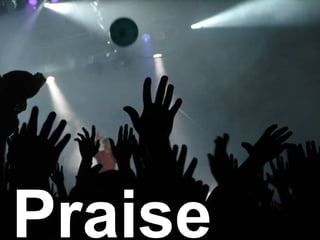
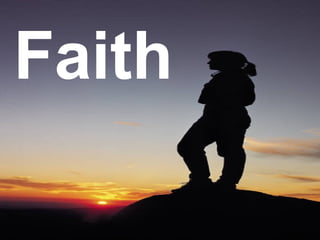
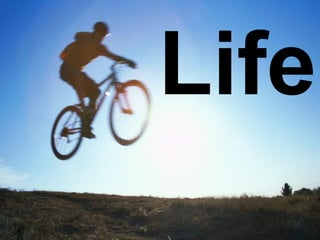
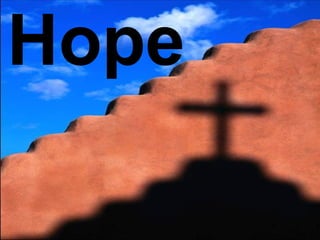
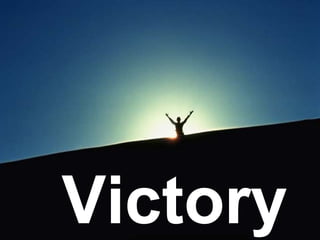
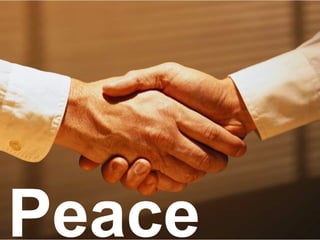
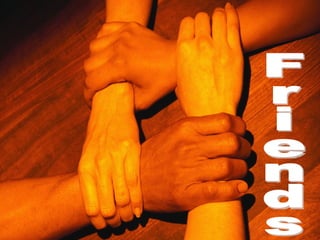
Ad
Recommended
ºÝºÝߣ
ºÝºÝߣKuo-Chuan Wang
?
±¾ÏîÄ¿Ö¼ÔÚͨ¹ýÎÞÏßÉÏ´«¸ÐÆ÷ÍøÂçÌáÉý̨ÄÏÊи®³ÇµÄ¹Û¹âÂÃÓÎÆ·ÖÊ£¬½¨Á¢±ã½ÝµÄ×Éѯƽ̨£¬ÒÔÌṩÓοÍ׼ȷµÄÐÅÏ¢Ó뽨Ò顣ͬʱ£¬Í¨¹ý»·¾³Òò×Ó¼à²â¡¢ÊµÊ±Êý¾ÝÊÕ¼¯ºÍÔƼÆËã¼¼Êõ£¬ÕûºÏÂÃÓÎÏà¹Ø·þÎñ£¬ÐγÉÕþ¸®¡¢É̼ÒÓëÓο͵ÄÈþÓ®¾ÖÃæ¡£ÏîÄ¿»¹°üÀ¨Õë¶ÔÖØÒªÎÄ»¯¾°µãµÄ±£»¤Óë¼à¿Ø´ëÊ©£¬ÒÔÈ·±£»·¾³ÎÀÉúÓëÓοͰ²È«¡£About Screen Reach
About Screen Reachscreenreach
?
Screenreach is an advanced digital communication platform designed for retail environments, enabling businesses to deliver dynamic rich-media messages to screens and mobile devices. It utilizes location-based data to ensure that communications reach the right audience at optimal times, enhancing customer engagement and driving sales. The platform allows retailers to manage content centrally and adapt messages to suit their target demographic, thereby increasing relevance and effectiveness.Corporate Social Media
Corporate Social Media Aaron Uhrmacher
?
This document provides an overview of social media tools and strategies for businesses. It discusses how social media has changed communications by increasing the number of bloggers and social media users. The document outlines various social media platforms like blogs, forums, social networks, videos, and wikis. It then discusses best practices for businesses, including listening, preparing objectives and policies, and measuring results. Specific tools like Radian6, TweetDeck and Facebook pages and ads are reviewed. The key lessons are that participation is important, conversations should be monitored, audiences engaged, think globally, and experiment.ºÝºÝߣ (nx power lite)
ºÝºÝߣ (nx power lite)Kuo-Chuan Wang
?
±¾Îļþ½éÉÜÁËÎÞÏß´«¸ÐÆ÷ÍøÂçƽ̨µÄºËÐļ¼Êõ¿ª·¢¼°ÆäÔÚ¸®³ÇÎÊ·µêµÄÓ¦Óã¬Ö¼ÔÚÌáÉýÓο͵Ĺ۹âÌåÑé¡£¸ÃÏîĿͨ¹ýÉèÖÃÐÅÏ¢×ÉѯվºÍ¼¼Êõ¼¯³É£¬ÌṩʵʱÂÃÓÎÐÅÏ¢ºÍ·þÎñ£¬´Ù½øµØ·½¾¼ÃºÍÎÄ»¯´«²¥¡£Î´À´¼Æ»®½«×ÅÖØÓÚ»·¾³¸Ð²â¡¢ÔƼÆËãÓÅ»¯ºÍÐÅÏ¢ÌáÈ¡É豸µÄÑз¢£¬½øÒ»²½¸ÄÉÆÓοͷþÎñ¡£Indigo Deca Uvod
Indigo Deca UvodSummer Computer Camp for Kids Serbia
?
Autor:Miona Aleksi?
Indigo deca su samouverena,ne prizanju kanone i odbacuju pravila.Deca koja odbijaju da se uklope u okvire koje su iscrtale stare generacije.N Co W Submission
N Co W Submissionguest0eee6
?
To submit work to the NCoW collection, decide what you want to contribute, create or gather the submission, obtain signed permission forms if others are involved including yourself, fill out a submission form including licensing your work, then submit for inclusion in the collection.Nacionalna strategija za_prevenciju_i_zastitu_dece_od_nasilja_lat
Nacionalna strategija za_prevenciju_i_zastitu_dece_od_nasilja_latSummer Computer Camp for Kids Serbia
?
All Children Everywhere E N 072409
All Children Everywhere E N 072409Summer Computer Camp for Kids Serbia
?
This document outlines UNICEF's education strategy from 2006-2015. The strategy aims to achieve universal primary education and gender equality in education by supporting national education plans and priorities through key partnerships. UNICEF works to improve access to education, quality of education, and education for marginalized groups like girls. Actions include abolishing school fees, providing learning materials and school meals, and establishing standards for effective education systems.Summer Computer Camp Serbia, TEDxYouth 2012.
Summer Computer Camp Serbia, TEDxYouth 2012.Summer Computer Camp for Kids Serbia
?
The document is promoting a computer camp for kids to learn how to make games rather than just play them. It notes that the camp had 500 kids who worked hard to create over 800 games, leaving 1000 satisfied parents. The goal was to teach kids at the camp how to be makers and creators using computers rather than just consumers of digital content.Speach by Teodor Sandel-Konjevic: About Komp Kamp (#CEGC2016)
Speach by Teodor Sandel-Konjevic: About Komp Kamp (#CEGC2016) Summer Computer Camp for Kids Serbia
?
The document discusses a summer computer camp called CompCamp that teaches children and youth computer literacy and programming skills through hands-on projects like game development, with the goal of better preparing them for an increasingly digital world and potentially sparking interest in tech careers. The camp provides both technical instruction and character building experiences through collaborative work and outdoor activities over a 2 week period each summer. Experts from local game studios also visit to provide insight into the game development process and industry.Kompkamp 2011 project_en
Kompkamp 2011 project_enSummer Computer Camp for Kids Serbia
?
This document describes a computer camp project in Novi Sad, Serbia organized by an NGO to provide educational programs for children ages 8-15. The goals of the camp are to teach children computer skills, promote tolerance, prevent violence and social neglect, and support child development. Activities include programming games, creative workshops on topics like health and careers, and sports. The camp aims to help children become self-sufficient users of technology and equal citizens.Ksenija Mudri: prezentacija Kako da se predmet istorija u ?koli predaje deci.
Ksenija Mudri: prezentacija Kako da se predmet istorija u ?koli predaje deci. Summer Computer Camp for Kids Serbia
?
"...verujem da vam se desilo da uceniku morate da date nizu ocenu jer nije dobro naucio lekciju iz istorije. U dobra brzine i interneta, istorija deluje dosadno, ali imam predlog i resenje kako da djacima napravimo istoriju interesantnijom.Predlazem vam promenu u skoli, a to je da se istorija vise ne zove istorija, vec da bude ISTORIJA SA OSNOVAMA ARHEOLOGIJE I ETNOLOGIJE.
Objasnicu vam. "Prirucnik za IT edukaciju dece predskolskog uzrasta-primer-linked
Prirucnik za IT edukaciju dece predskolskog uzrasta-primer-linkedSummer Computer Camp for Kids Serbia
?
The document discusses how children are growing up with computers and that "we are ready" to teach them about technology. It then asks what hardware and software are, and states that "everything can be done with two fingers!" while showing keyboard shortcuts like Ctrl+C and Alt+Del. The document is copyrighted by KompKamp NGO from 2003-2012.Gmf
GmfSummer Computer Camp for Kids Serbia
?
The document expresses concerns about genetically modified food (GMF), claiming it is harmful and potentially linked to various health risks, including cancer. It suggests that the government is secretly modifying crops with chemicals, leading to adverse effects on human health. The author advises avoiding GMF and searching for irregularities in food appearance as a precaution.More Related Content
Viewers also liked (9)
Nacionalna strategija za_prevenciju_i_zastitu_dece_od_nasilja_lat
Nacionalna strategija za_prevenciju_i_zastitu_dece_od_nasilja_latSummer Computer Camp for Kids Serbia
?
All Children Everywhere E N 072409
All Children Everywhere E N 072409Summer Computer Camp for Kids Serbia
?
This document outlines UNICEF's education strategy from 2006-2015. The strategy aims to achieve universal primary education and gender equality in education by supporting national education plans and priorities through key partnerships. UNICEF works to improve access to education, quality of education, and education for marginalized groups like girls. Actions include abolishing school fees, providing learning materials and school meals, and establishing standards for effective education systems.Summer Computer Camp Serbia, TEDxYouth 2012.
Summer Computer Camp Serbia, TEDxYouth 2012.Summer Computer Camp for Kids Serbia
?
The document is promoting a computer camp for kids to learn how to make games rather than just play them. It notes that the camp had 500 kids who worked hard to create over 800 games, leaving 1000 satisfied parents. The goal was to teach kids at the camp how to be makers and creators using computers rather than just consumers of digital content.Speach by Teodor Sandel-Konjevic: About Komp Kamp (#CEGC2016)
Speach by Teodor Sandel-Konjevic: About Komp Kamp (#CEGC2016) Summer Computer Camp for Kids Serbia
?
The document discusses a summer computer camp called CompCamp that teaches children and youth computer literacy and programming skills through hands-on projects like game development, with the goal of better preparing them for an increasingly digital world and potentially sparking interest in tech careers. The camp provides both technical instruction and character building experiences through collaborative work and outdoor activities over a 2 week period each summer. Experts from local game studios also visit to provide insight into the game development process and industry.Kompkamp 2011 project_en
Kompkamp 2011 project_enSummer Computer Camp for Kids Serbia
?
This document describes a computer camp project in Novi Sad, Serbia organized by an NGO to provide educational programs for children ages 8-15. The goals of the camp are to teach children computer skills, promote tolerance, prevent violence and social neglect, and support child development. Activities include programming games, creative workshops on topics like health and careers, and sports. The camp aims to help children become self-sufficient users of technology and equal citizens.Ksenija Mudri: prezentacija Kako da se predmet istorija u ?koli predaje deci.
Ksenija Mudri: prezentacija Kako da se predmet istorija u ?koli predaje deci. Summer Computer Camp for Kids Serbia
?
"...verujem da vam se desilo da uceniku morate da date nizu ocenu jer nije dobro naucio lekciju iz istorije. U dobra brzine i interneta, istorija deluje dosadno, ali imam predlog i resenje kako da djacima napravimo istoriju interesantnijom.Predlazem vam promenu u skoli, a to je da se istorija vise ne zove istorija, vec da bude ISTORIJA SA OSNOVAMA ARHEOLOGIJE I ETNOLOGIJE.
Objasnicu vam. "Prirucnik za IT edukaciju dece predskolskog uzrasta-primer-linked
Prirucnik za IT edukaciju dece predskolskog uzrasta-primer-linkedSummer Computer Camp for Kids Serbia
?
The document discusses how children are growing up with computers and that "we are ready" to teach them about technology. It then asks what hardware and software are, and states that "everything can be done with two fingers!" while showing keyboard shortcuts like Ctrl+C and Alt+Del. The document is copyrighted by KompKamp NGO from 2003-2012.Gmf
GmfSummer Computer Camp for Kids Serbia
?
The document expresses concerns about genetically modified food (GMF), claiming it is harmful and potentially linked to various health risks, including cancer. It suggests that the government is secretly modifying crops with chemicals, leading to adverse effects on human health. The author advises avoiding GMF and searching for irregularities in food appearance as a precaution.Nacionalna strategija za_prevenciju_i_zastitu_dece_od_nasilja_lat
Nacionalna strategija za_prevenciju_i_zastitu_dece_od_nasilja_latSummer Computer Camp for Kids Serbia
?
Ksenija Mudri: prezentacija Kako da se predmet istorija u ?koli predaje deci.
Ksenija Mudri: prezentacija Kako da se predmet istorija u ?koli predaje deci. Summer Computer Camp for Kids Serbia
?
Prirucnik za IT edukaciju dece predskolskog uzrasta-primer-linked
Prirucnik za IT edukaciju dece predskolskog uzrasta-primer-linkedSummer Computer Camp for Kids Serbia
?